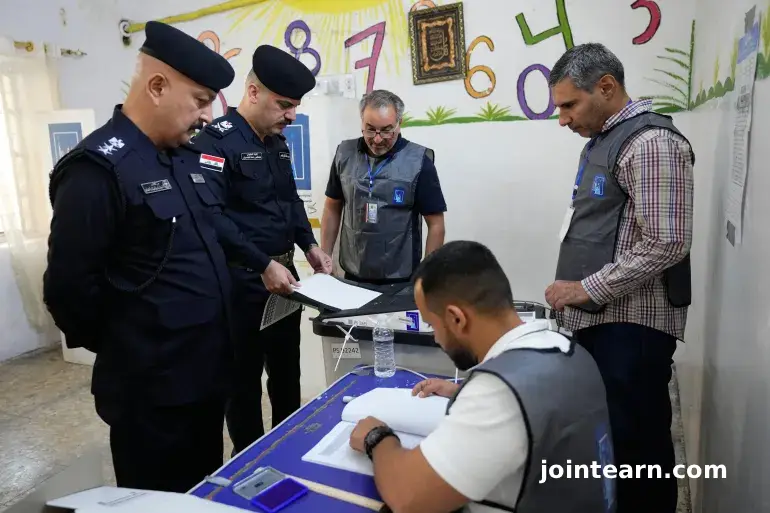
Iraqis are heading to the polls on Tuesday, November 11, 2025, to elect a new parliament, marking another pivotal moment in the country’s post-2003 political history. Observers say voter turnout could signal whether citizens still trust Iraq’s political system to deliver security, basic services, and economic stability.
Historical Context: From Invasion to Political Fragmentation
The U.S.-led invasion of Iraq in 2003 toppled President Saddam Hussein, reshaping Iraq’s political landscape and fueling sectarian tensions. Subsequent years saw armed conflicts between Shia and Sunni militias (2006–2008) and later between Iraqi forces and ISIL (2013–2017).
Since Iraq’s first parliamentary elections in 2005, citizens have grown disillusioned with entrenched political elites and parties, many of whom have maintained power while failing to improve public services. Despite this, millions are expected to vote.
How Iraq’s Parliamentary Elections Work
- Seats: Iraqis will elect 329 members of parliament, with at least 25% (83 seats) reserved for women.
- Voting schedule: Early voting occurred for security personnel and 26,000 displaced Iraqis on Sunday. General polling runs from 7 am to 6 pm local time (04:00–15:00 GMT).
- Polling locations: Voting takes place in 18 of Iraq’s 19 provinces, with the new province of Halabja included in Sulaimaniya’s tally.
Candidates and Political Landscape
A total of 7,744 candidates are contesting the elections, mostly affiliated with sectarian political parties, a legacy of the muhasasa (quota) system implemented after the U.S. invasion to ensure representation of Iraq’s diverse ethnic and religious groups.
Under this system:
- The Speaker of Parliament is always Sunni
- The Prime Minister is Shia
- The President is Kurdish
Major Political Players
- Shia Blocs: Former Prime Minister Nouri al-Maliki leads a powerful Shia bloc, while current Prime Minister Mohammed Shia al-Sudani seeks a second term amid internal divisions within the Shia Coordination Framework (SCF).
- Sunni Parties: The Taqaddum (Progress) Party, led by parliamentary Speaker Mohamed al-Halbousi, dominates Sunni regions in the west and north.
- Kurdish Parties: The Kurdistan Democratic Party (KDP) aims to secure greater control over oil revenues, while the Patriotic Union of Kurdistan (PUK) focuses on closer ties with Baghdad.
Boycott by Moqtada al-Sadr
Influential Shia cleric Moqtada al-Sadr has called for a boycott, citing opposition to the muhasasa system. Analysts warn this could undermine the legitimacy of the next government and reduce voter turnout, particularly in southern and central Iraq.
Voter Registration and Turnout
Only 21.4 million Iraqis of a total 32 million eligible voters are registered, down from 24 million in 2021, when turnout hit a record low of 41%. Youth disillusionment with sectarian politics and widespread corruption are seen as key reasons for low participation.
Key Issues at Stake
- Prime Ministerial Power: Al-Sudani seeks to secure a second term, but may face resistance from Shia parties within the SCF.
- Popular Mobilisation Forces (PMF): Al-Sudani has pledged to integrate PMF units into the Iraqi army chain of command, but these groups retain significant political and economic influence.
- Shia Power Struggle: Al-Maliki remains a major contender for the prime ministership, despite criticisms over his previous terms and their role in inflaming sectarian tensions and facilitating the rise of ISIL.
Why the 2025 Elections Matter
These elections will not only determine Iraq’s parliamentary composition but also test the country’s political stability, the effectiveness of the muhasasa system, and the government’s ability to address security, corruption, and basic service delivery.
Analysts caution that poor voter turnout or electoral disputes could further weaken the government’s legitimacy and complicate Iraq’s path toward political and economic reform.


Leave a Reply